Tax regime for online stores
With the economic growth verified in Portugal in recent years many new businesses have emerged. Because of strategic or cost-saving reasons, many start online only. So, often, new entrepreneurs have doubts about the tax regime they are in and how the
With the economic growth verified in Portugal in recent years many new businesses have emerged. Because of strategic or cost-saving reasons, many start online only. So, often, new entrepreneurs have doubts about the tax regime they are in and how they can meet their legal obligations. In this article we explain everything.
Tax liabilities
Any economic activity in which there is the transaction of goods or services, is obliged to fulfill certain fiscal obligations. These activities include, of course, the online stores. Although it does not have a physical store, and even can not sell physical goods, there is an obligation to comply with the law.
If you are planning to open an online store you'll have to worry about two types of taxes: VAT and IRS / IRC.
The first is a tax applied directly to the selling price of a product. VAT has, in mainland Portugal, the normal rate of 23%, an intermediate rate of 13% and a reduced rate of 6%. Most of the goods and services sold fall within the normal rate, so it is likely to be your case. Thus, at the selling price of each product, you must add this tax, which will be borne by the buyer. As an entrepreneur, you will subsequently have the obligation to deliver this amount to the tax authority (monthly or quarterly according to the regime in which you are).
With respect to the IRS and IRC, these consist of income taxes. One is for the income of individual persons, the other for the income of companies. These two types of income are related to how you open up the activity you do. If you want to open a business you will have to communicate this to your tax authorities and choose how you want your business to be considered: an individual entrepreneur or a company.
Individual entrepreneur VS Company
The individual entrepreneur is the most "simple" form of tax regime. So this is often suitable for new business. It also has fewer costs and is more easily manageable without recourse to a certified accountant. On the other hand, the company has certain other obligations such as, precisely, the obligation to have a certified accountant.
In case you decide to open business as an individual entrepreneur, you will be subject to IRS payment. Otherwise you will have to pay IRC, whose fixed rate is currently 21%. Both taxes are applied to the value that the tax authorities considers profit obtained from the activity. Thus, while VAT directly levied on the selling price of an item, the IRS and IRC levied on the difference between the cost price and the selling price of a particular good or service.
Conclusion
The opening of an online store has many advantages over traditional businesses with a physical space. However, these are subject to the same tax obligations, namely the payment of the respective taxes. The two main taxes you will have to pay are VAT and IRS / IRC. You are also required to pass an invoice every time you make a transaction. You should also pay attention to complying with the legal deadlines to make your tax declarations and settlements.
